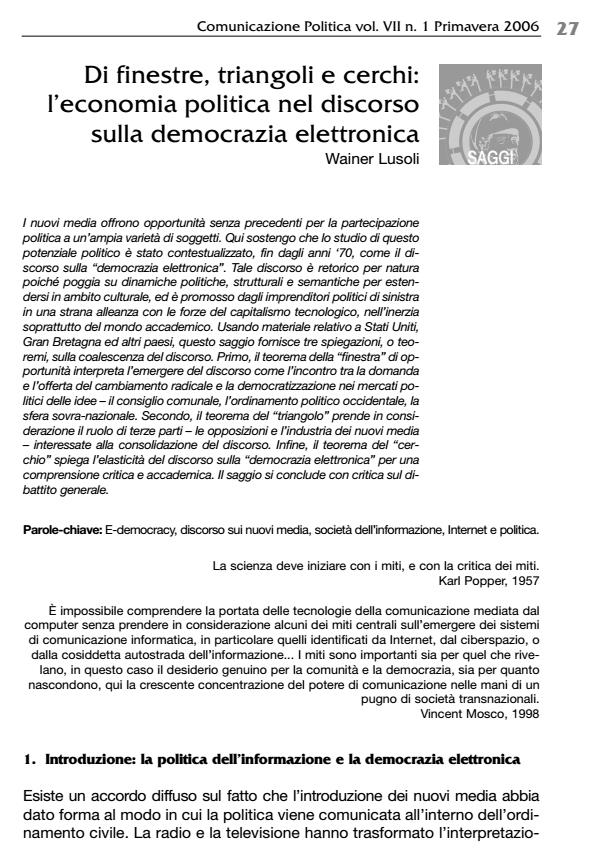Di finestre, triangoli e cerchi: l'economia politica nel discorso sulla democrazia elettronica
Journal title COMUNICAZIONE POLITICA
Author/s Wainer Lusoli
Publishing Year 2006 Issue 2006/1 Language Italian
Pages 22 P. 27-48 File size 115 KB
DOI
DOI is like a bar code for intellectual property: to have more infomation
click here
Below, you can see the article first page
If you want to buy this article in PDF format, you can do it, following the instructions to buy download credits

FrancoAngeli is member of Publishers International Linking Association, Inc (PILA), a not-for-profit association which run the CrossRef service enabling links to and from online scholarly content.
New media offer unprecedented opportunities of political engagement to a wide range of actors. I argue here that the study of this political potential has been framed, since the ‘70s, as an electronic democracy discourse. The discourse is rhetorical in nature and builds on political, structural and semantic dynamics unfolding in the cultural domain, promoted by left-wing political entrepreneurs in strange alliance with the forces of high-tech capitalism, mainly amongst academic quiescence. Using material from the Us, the Uk and other countries this article offers three explanations, or theorems, of the coalescence of the discourse. First, a policy window theorem interprets the emergence of the discourse as the encounter of demand and offer of radical change and emocratisation in the political marketplaces of idea the city council, the western polity, the supra-national sphere. Second, a triangle theorem takes into account the role of third interested poles oppositions and the new media industry in the consolidation of the discourse. Finally, a semantics theorem explains the resilience of the e-democracy discourse to critical and scholarly understanding. A critique of the debate concludes the article.
Wainer Lusoli, Di finestre, triangoli e cerchi: l'economia politica nel discorso sulla democrazia elettronica in "COMUNICAZIONE POLITICA" 1/2006, pp 27-48, DOI: